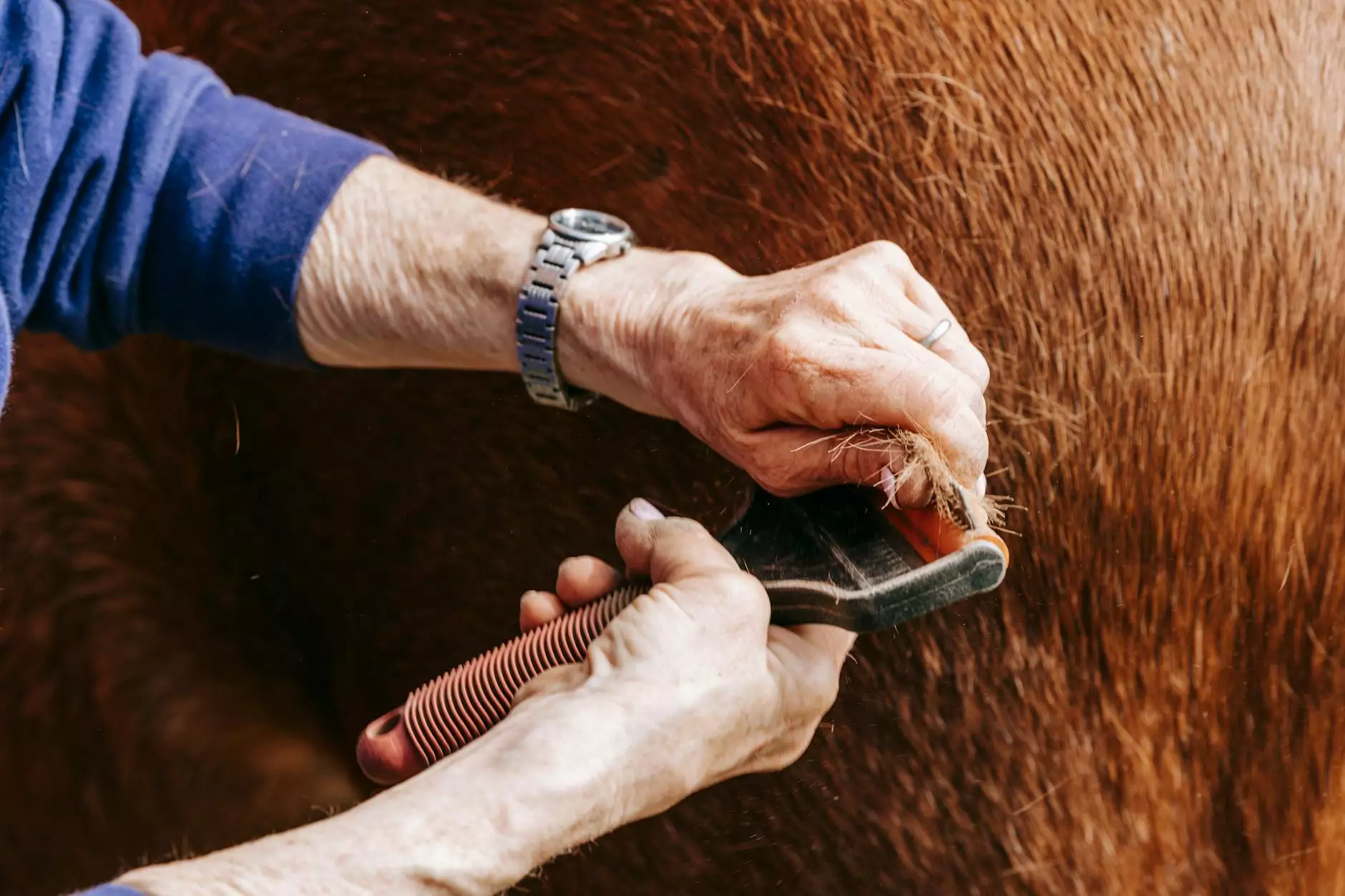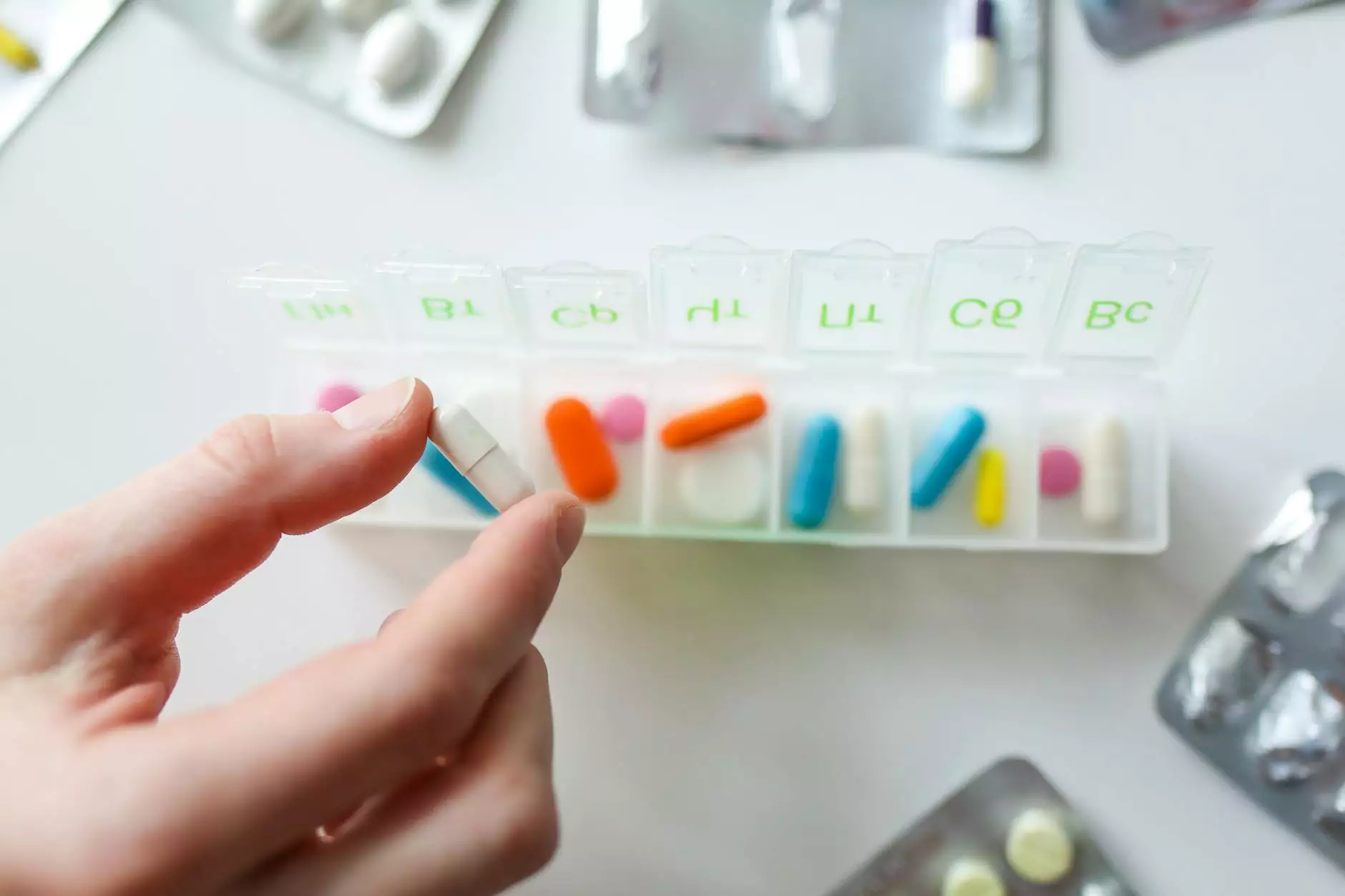Understanding Equine Injections: A Comprehensive Guide

In the world of equine care, equine injections play a pivotal role in maintaining the health and performance of horses. These injections encompass a wide array of therapeutic and preventive measures designed to address various health concerns in equines. In this comprehensive guide, we will delve deep into the different types of equine injections, their benefits, and how they contribute to the overall well-being of horses.
The Importance of Equine Injections in Veterinary Medicine
The administration of injections in horses is a common practice that serves multiple purposes. Veterinarians utilize equine injections for a variety of reasons, including:
- Vaccinations: To prevent infectious diseases.
- Treatment of diseases: To administer medications directly into the bloodstream.
- Joint and soft tissue issues: To deliver anti-inflammatory drugs.
- Enhancing performance: To improve overall health and stamina.
Types of Equine Injections
There are several types of equine injections, each serving unique purposes and requiring specific techniques for proper administration. Here’s an overview of the most common types:
1. Intramuscular Injections (IM)
Intramuscular injections are commonly used for delivering medications, vaccines, and other substances into the muscle tissue. This method allows for efficient absorption into the bloodstream. Common sites for IM injections include:
- Neck muscles
- Shoulders
- Thigh muscles
2. Intravenous Injections (IV)
Intravenous injections involve administering medications directly into a vein. This method is often used in emergency situations or for delivering drugs that need to take effect quickly. The jugular vein is the most commonly used site for IV injections in horses.
3. Subcutaneous Injections (SQ)
Subcutaneous injections are delivered into the layer of fat and tissue just beneath the skin. This method is often used for vaccinations and some medications, providing a slower absorption rate than IM or IV injections. Common sites for SQ injections include:
- Loose skin over the neck
- Shoulders
The Advantages of Equine Injections
The use of equine injections provides numerous advantages, making them essential in equine healthcare. Some of the key benefits include:
- Quick Delivery of Medications: Injections provide faster results compared to oral medications.
- Targeted Treatment: Equine injections can deliver medications directly to the area that requires treatment, enhancing efficacy.
- Precision: Injections allow for accurate dosage, which is crucial in managing the health of horses.
- Prevention: Vaccinations administered through injections help prevent outbreaks of serious diseases.
Common Conditions Treated with Equine Injections
Equine injections can address a variety of health issues that affect horses. Some common conditions that are treated through this method include:
1. Arthritis and Joint Pain
Injections of corticosteroids or hyaluronic acid are often used to relieve pain and inflammation associated with arthritis in horses. Joint injections can significantly improve the mobility and quality of life for affected horses.
2. Respiratory Issues
For horses suffering from respiratory infections or allergies, intravenous injections of antibiotics or anti-inflammatories can help in managing symptoms and speeding recovery.
3. Infectious Diseases
Vaccinations are a crucial aspect of equine injections, providing immunity against diseases such as West Nile virus, equine influenza, and tetanus. Vaccination protocols are tailored to each horse's needs and risk factors.
How to Prepare for Equine Injections
Preparing for equine injections is essential for ensuring the welfare of the horse and the effectiveness of the treatment. Here are some important steps to consider:
- Consult Your Veterinarian: Always work closely with a licensed veterinarian to determine the necessity and timing of injections.
- Gather Necessary Supplies: Make sure you have all necessary supplies, including needles, syringes, alcohol wipes, and any medications.
- Calm Your Horse: Ensure your horse is calm and relaxed prior to administering the injection. Using proper restraint techniques can help prevent injury.
- Check Injection Site: Inspect the injection site for cleanliness and make sure it is free of any inflammation or infection.
Post-Injection Care
After administering an injection, it’s imperative to monitor the horse for any adverse reactions. Here are some key post-injection care guidelines:
- Observation: Keep an eye on the horse for at least 30 minutes for any signs of discomfort or allergic reactions.
- Site Care: After the injection, keep the site clean and dry. Monitor it for signs of swelling or heat.
- Limit Activity: Restrict strenuous activity for a short period, as per your veterinarian's instructions, to allow for proper healing.
The Future of Equine Injections
As veterinary medicine continues to evolve, so does the technology surrounding equine injections. Advanced formulations, such as long-acting injectables and biologic therapies like platelet-rich plasma (PRP), are becoming more accessible and are showing promising results in the treatment of various equine conditions. Additionally, ongoing research is expected to introduce new vaccines and therapeutic agents that enhance equine health even further.
Conclusion
In conclusion, equine injections are a cornerstone of equine veterinary care, providing critical solutions for a variety of health issues faced by horses. From improving performance to managing chronic conditions, the benefits of these injections are invaluable to horse owners and veterinarians alike. It is essential to work closely with veterinary professionals to stay informed about appropriate vaccination schedules and treatment protocols tailored to each horse's unique needs. By prioritizing equine health through responsible injection practices, we can ensure our equine companions lead healthy and fulfilling lives.
References
For further reading, consider exploring reputable veterinary sources, articles from equine health organizations, and research studies that discuss the latest advancements in equine medicine and injections.









